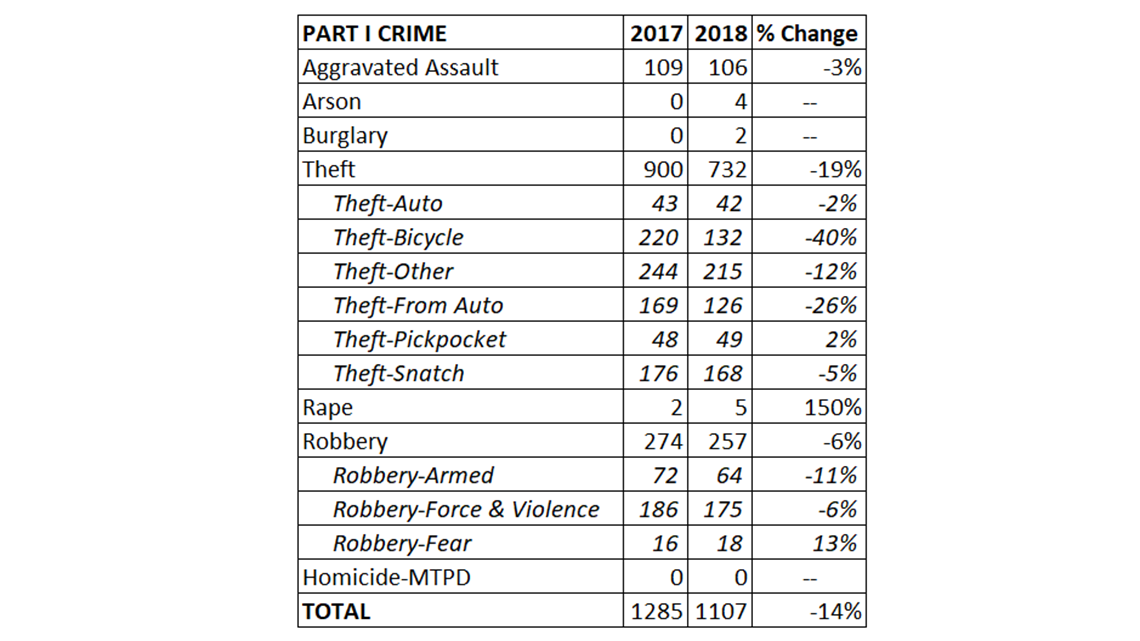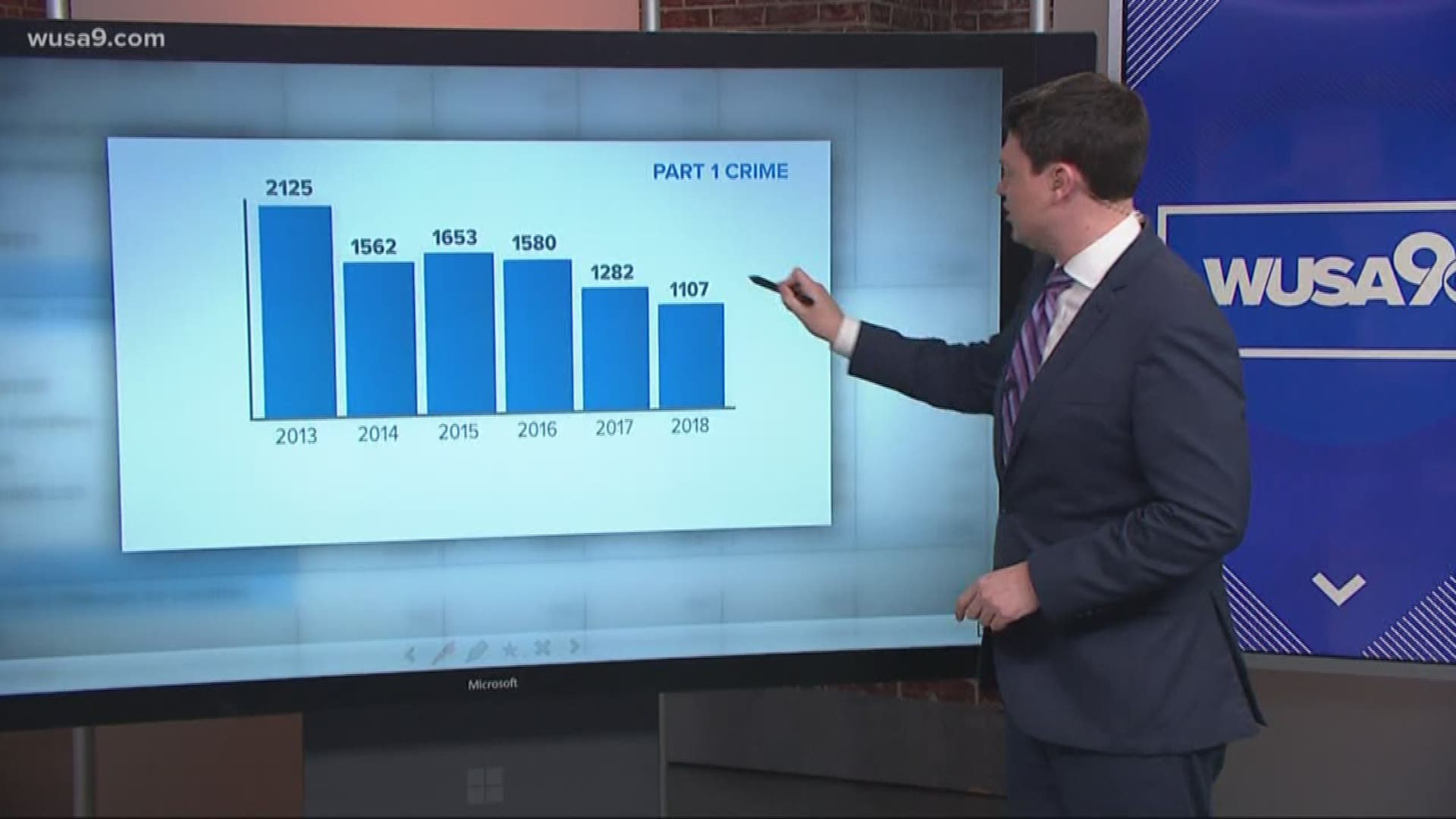Metro Transit Police say last year saw the lowest crime numbers in almost two decades thanks to a significant drop in thefts – but warned that the D.C. Council’s recent decision to decriminalize fare evasion could threaten that.
The department is reporting 1,107 Part I crimes in 2018 – a 14-percent decline compared to 2017. Part I is a designation in the FBI’s Uniform Crime Reporting (UCR) Program used to report serious crimes like robbery, rape, theft and assault.
According to MTPD, the metro saw a 19-percent reduction in thefts in 2018 compared to 2017, including a 25-percent drop in theft-from-auto incidents. Metro provided WUSA9 with an overview of the Part I crimes reported on the system in 2018.


Full 2018 MTPD Uniform Crime Report data was not immediately available, but the department’s monthly crime report from November, the most recent available, showed Part I incidents at bus stops (68 as of November 2018, compared to 110 as of November 2017) and parking lots (201 as of November 2018, compared to 325 as of November 2017) had seen significant decreases.
On the other hand, as of November, incidents on buses had increased by nearly 30 percent – from 96 as of November 2017 to 124 as of November 2018 – and incidents at metro facilities had seen a marginal increase of three more incidents compared to the same time in 2017.
Part II incidents – which includes all other crimes not classified as Part I – were also up on buses, rising from 616 as of November 2017 to 647 as of November 2018.
MTPD’s November report also shows enforcement actions decreased across the board, with arrests dropping by nearly 19 percent and citations/summonses dropping by 16 percent. Incidents of fare evasion had also decreased, dropping from 14,338 incidents as of November 2017 to 11,639 as of November 2018 – an 18.8-percent decrease.
Addressing the latter issue, MTPD stressed again its opposition to decriminalizing fare evasion in a press releasing announcing last year’s the crime numbers – noting that the D.C. Council passed a bill doing just that over the objections of MTPD and the WMATA Board of Directors.
READ MORE | Fare evasion decriminalization bill gets final approval in D.C. City Council | Metro calls decriminalizing evasion ‘unfair’ to riders who do pay
“Most serious crime on Metro includes a fare evasion component,” MTPD Chief Ronald Pavlik said in the release. “Our experience over the past several years has been that as fare enforcement has gone up, crime has gone down.”
The council voted last month to reduce the $300 criminal fine for fare evasion to a $50 civil fine. Proponents of the move said an analysis of more than 30,000 citations showed a racial disparity in how the law was being enforced. The Washington Lawyers’ Committee for Civil Rights said their review found that more than 90 percent of those cited for fare evasion were black. Metro has said it believes it loses $25 million in revenue a year from Metrobus alone from people who don’t pay their fares.
One thing that did not change: the number of sexual assaults on Metro. Transit Police reported five sexual assaults or rapes last year. All but one of those cases were closed.
Metro is trying to deal with sexual harassment on trains and buses. One in five riders in a recent survey said they had been harassed.
Metro thinks so many incidents are not reported and it has a new campaign reminding riders to report sexual harassment.
Here's Metro's three tips:
- If it happens to you, call it out. Say hey, that's inappropriate. Often just a simple exclamation can stop it.
- Recruit help. Involve others who are seeing or hearing harassment. Victims advocates say there's power in numbers
- Report it. Metro has a hotline, a text line and a web portal. Or you can simply tell a Metro employee.
----
Jordan Fischer is an investigative reporter with WUSA9. Send news tips to jfischer@wusa9.com and follow him on Facebook and Twitter at @JordanOnRecord.

